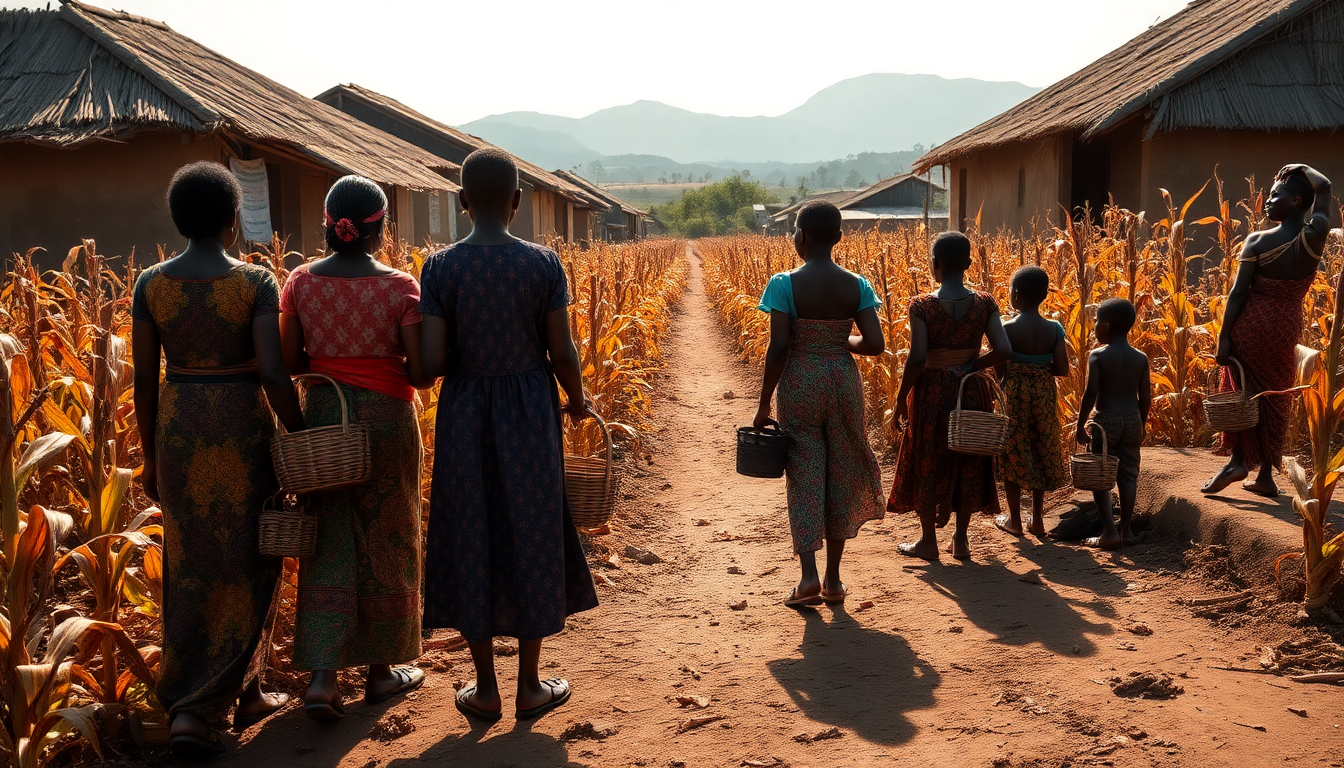Table of Contents
The humanitarian crisis in eastern Democratic Republic of Congo (DRC) has reached a critical point. A recent report has revealed one of the largest documented death tolls from violence in the region. It raises a pressing question: how effective are peace agreements when conflict continues to claim innocent lives? Despite a declared truce, the resurgence of violence has left many civilians in peril, highlighting the ongoing struggles of affected communities.
The Current Situation: Unfolding Violence
According to Volker Turk, the UN High Commissioner for Human Rights, the M23 rebels—who are reportedly backed by Rwanda—have tragically caused the deaths of at least 319 civilians in just one month. Among the victims, a significant number are women and children.
This alarming statistic underscores just how severe the violence has become in the Rutshuru territory of North Kivu Province. The recent uptick in hostilities marks one of the deadliest periods since the M23 group resurfaced in 2022, indicating a distressing pattern of escalating violence amidst broken ceasefire agreements.
This region, rich in valuable minerals, has been a battleground for armed groups for over three decades. The return of the M23 has intensified local conflicts and sparked a humanitarian crisis, leading to widespread displacement and a critical shortage of essential resources.
The UN has documented numerous attacks across North Kivu, South Kivu, and Ituri provinces, painting a grim picture of the ongoing strife and underscoring the urgent need for intervention.
Peace Efforts and Their Challenges
In June, the Congolese government and the M23 signed a declaration aimed at establishing a permanent ceasefire.
However, just weeks later, violence erupted once again, raising serious doubts about both parties’ commitment to maintaining peace. Turk expressed his disappointment at the ongoing attacks on civilians, stressing the need for a ceasefire to be respected and for all perpetrators to be held accountable.
Recent agreements made in Doha and Washington aimed to lay the groundwork for peace, but so far, they haven’t translated into real safety for the people.
These agreements include plans to restore state authority in eastern DRC and begin direct talks toward a comprehensive peace accord. But will these terms be implemented effectively? The historical involvement of Rwanda in this region casts a shadow of uncertainty. The upcoming meeting between Rwandan President Paul Kagame and Congolese President Felix Tshisekedi could be a pivotal moment to reinforce these commitments and carve out a clearer path to peace.
Humanitarian Consequences: The Toll on Civilians
The ongoing conflict has devastating effects on civilians, who are caught in a relentless cycle of fear, displacement, and deprivation. Many communities in eastern DRC struggle to access basic necessities such as food, clean water, and healthcare as armed groups vie for control. This humanitarian situation is worsened by the region’s rich mineral deposits, which have historically attracted both local and foreign interests, resulting in exploitation and further conflict.
Moreover, the international community must step up to address this crisis. There is an urgent need for coordinated humanitarian assistance and a robust framework for peace that prioritizes the safety and well-being of civilians. Turk’s call for swift action from the signatories of peace agreements serves as a stark reminder: the consequences of inaction could be catastrophic for the people of the DRC.
Looking Ahead: The Path to Stability
As the situation in eastern DRC continues to unfold, it’s crucial to keep a close eye on developments. The effectiveness of peace agreements, the accountability of armed groups, and the international community’s response will significantly shape the humanitarian landscape. Is there hope for renewed dialogue and a genuine commitment to peace? It could be the key to stability in a region long plagued by conflict.
In conclusion, the recent violence in eastern DRC underscores the urgent need for a comprehensive approach to peace that prioritizes the protection of civilians and tackles the root causes of conflict. Only through sustained efforts to uphold human rights and promote dialogue can the region hope to overcome its challenges and build a brighter future for its people.





